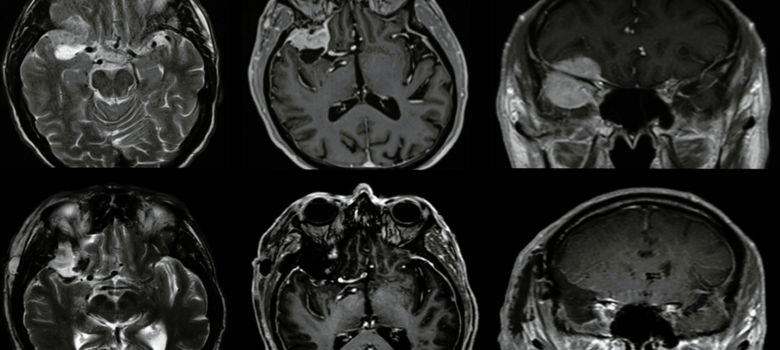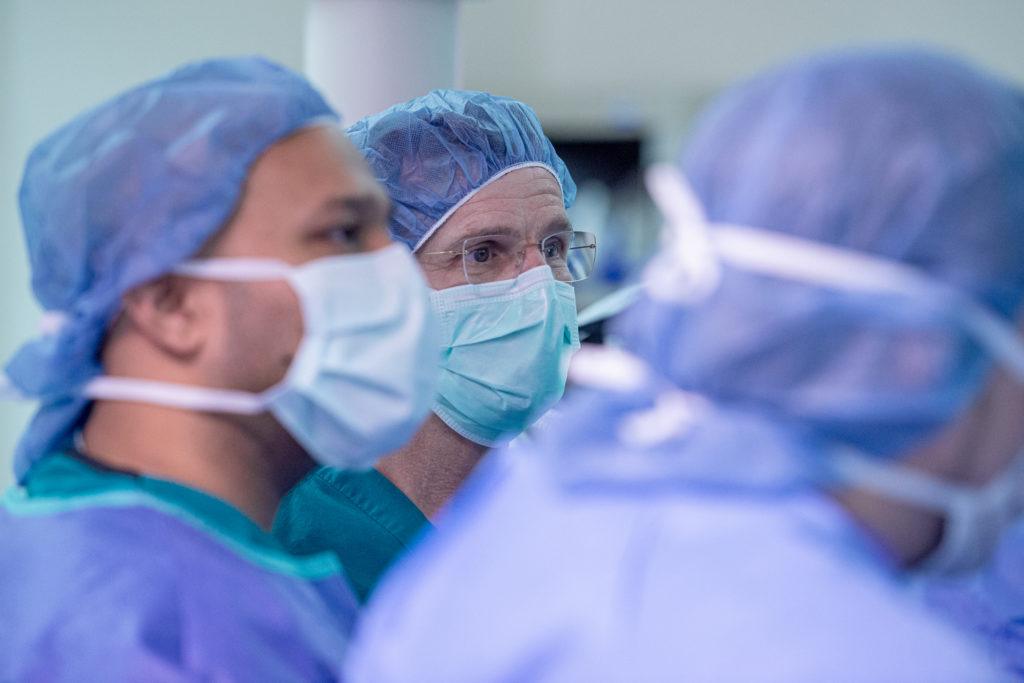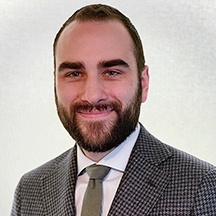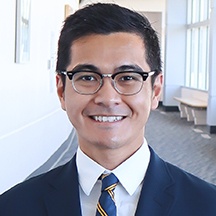

PNI Publishes 13-Year Study on Less Invasive Brain Surgery
by Amelia Garrison
A recent Pacific Neuroscience Institute (PNI) study may help neurosurgeons to apply less invasive techniques in brain tumor removal.

The purpose of the study
Neurosurgeons at Pacific Neuroscience Institute’s Brain Tumor Center compared two types of minimally invasive craniotomies, supraorbital (SO, eyebrow) and mini-pterional (MP), to assess the outcomes and anatomical limits in patients with intra-axial and extra-axial brain tumors. The study also assessed the utility of endoscopy, approach selection, and surgical field overlap. The results were published in the Journal of Neurosurgery.
The research was led by Dr. Daniel F. Kelly, Director and one of the founders of Pacific Neuroscience Institute (PNI), Dr. Garni Barkhoudarian, Co-Director of the Pituitary Disorders Center, Dr. Michael B. Avery, Neurosurgical Fellow (2020-21), and R.J. Mallari, Staff Scientific Writer.
Understanding the results

Despite the smaller scalp incision and bone flap, the study suggests that the supraorbital route provides far greater anatomical reach than the mini-pterional route. However, both supraorbital and mini-pterional craniotomies were found to be “versatile, safe, and complementary approaches for tumors located in the anterior and middle cranial fossae and perisylvian and parasellar regions.”
A step forward in neurosurgery

The study, which spans thirteen years (2007 to 2020), is a step forward in neurosurgery, providing neurosurgeons with less invasive, complementary surgical approaches in patients with brain tumors.
Learn more about the brain tumor center and expert team.
More information: 310-582-7450
Reference:
About Dr. Daniel Kelly

Daniel F. Kelly, MD, is the Director of the Pacific Brain Tumor and Pituitary Disorders Centers at Pacific Neuroscience Institute in Santa Monica, CA. Considered to be one of the top neurosurgeons in the U.S., Dr. Kelly is internationally recognized in the field of minimally invasive keyhole surgery for brain, pituitary, and skull base tumors. He continues to focus his efforts on advancing innovative treatments for patients, providing fellowship training in minimally invasive neurosurgery, and patient education and support.
About Dr. Garni Barkhoudarian

Garni Barkhoudarian, MD, FAANS, is a board-certified, fellowship-trained neurosurgeon with a focus on skull base and minimally invasive endoscopic surgery. Dr. Barkhoudarian has particular interest and expertise in pituitary and parasellar tumors, brain tumors, skull base tumors (including meningiomas, craniopharyngiomas, chordomas and schwannomas), intra-ventricular brain tumors, colloid cysts, trigeminal neuralgia, hemifacial spasm and other vascular compression syndromes.
About Dr. Michael Avery

Michael Avery, MD, obtained his medical degree from the University of Western Ontario in London, Canada. Dr. Avery then completed the neurosurgery residency program at the University of Calgary, during which he also obtained a Master of Science degree in Neuroscience investigating the potential use of mesenchymal stem cells in the prevention and treatment of brain aneurysms. He was the PNI 2020-21 neurosurgical fellow.
About R.J. Mallari

R.J. Mallari is a staff scientific writer in neurosurgery research at the Brain Tumor and Pituitary Disorders Centers at Pacific Neuroscience Institute. With a background in math, combined with his interest in neurosciences, his analytical skills have been invaluable in the assessment of patient and surgical data and outcomes. He is passionate about the treatment of neurological diseases and is preparing to enter medical school.
Related Links:
About the Author

Amelia Garrison
Amelia Garrison is the Marketing Specialist at Pacific Neuroscience Institute (PNI). Well versed in community outreach strategy and implementation, she leads the PNI blog, newsletter, and digital communications. Amelia oversees PNI's reputation management and community sponsorships.
Last updated: December 1st, 2021